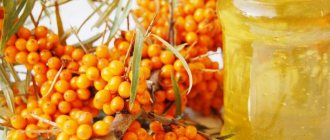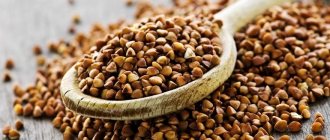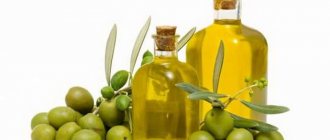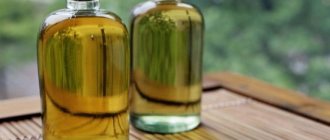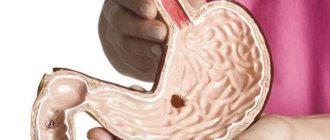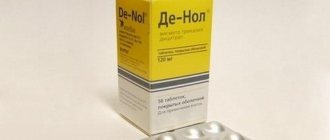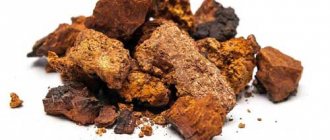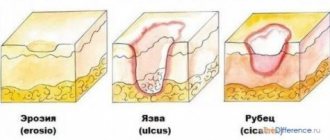Sea buckthorn oil can be used for gastritis if a disease with high or low acidity is diagnosed, as well as in the treatment of erosive and atrophic forms. This product has enviable healing properties, but only with proper use, which should be regulated by a doctor. Patients need to know how to drink this product correctly so as not to cause an exacerbation of the disease. After all, it has serious limitations...
Use of sea buckthorn and oil for gastritis
Much depends on the form in which sea buckthorn is used in the treatment of atrophic and erosive gastritis. So, with high acidity, eating fresh berries is the same as drinking citric acid. And the oil in this case will be very useful.
If you do not want to use a fatty product, then during the remission stage the patient may be allowed to drink tea from the leaves and berries of the medicinal plant. However, in any case, it is important to use only high-quality products, and not frozen Chinese sea buckthorn.
The benefits of vitamins in oil
Sea buckthorn contains a high concentration of vitamins C, E and group B. As part of the oil, they are absorbed faster and more efficiently, giving all their benefits to the sick body:
- Vitamin C. Improves the condition of blood vessels, stimulates the regeneration of connective tissues and increases the elasticity of the main body system responsible for supplying tissues with nutrients. This property ensures rapid healing of wounds if erosive gastritis is diagnosed. The vitamin is also responsible for the removal of harmful substances and is useful in large quantities during exacerbation of the disease. The antioxidant effect of ascorbic acid has been proven, which is why it is used to prevent cancer.
- Vitamin E. Another important antioxidant that protects against oxidation, heals wounds and helps against the symptoms of atrophic diffuse or focal gastritis.
- B vitamins . These microelements are necessary for digestion, eliminating congestion and reducing inflammatory processes in atrophic gastritis. In case of a disease with low acidity, B vitamins influence the normalization of its level.
- Vitamin P The trace element is aimed at eliminating inflammation and pain, helps with allergic gastritis and destroys all bacteria in combination with other substances.
- Vitamin K Responsible for blood clotting; in case of open ulcers, it prevents anemia, which is very useful for patients with erosive gastritis.
- Carotenoids . These substances are one of the types of vitamin A. They are necessary to maintain local immunity and destroy bacteria. The vitamin activates the healing of the mucous membrane and normalizes the functioning of the secretory glands.
What is surprising about the action of all these substances is that they are able to enhance each other, and in the composition of sea buckthorn oil their concentrations are so precisely selected by nature that they help to effectively treat atrophic and erosive gastritis.
Data on the composition of sea buckthorn in different forms (the quantity may vary depending on the variety and country of growth)
| Juice | Dried pulp | Dried seeds | |
| Energy value (Kcal/100 g) | 53 | 481 | 431 |
| Energy value (kJ/100 g) | 222 | 2013 | 1805 |
| Protein (N x 6.25) (g/100g) | 0.6 | 6,8 | 29,8 |
| Fat (g/100g) | 1,4 | 23,5 | 12,9 |
| Saturated fat (g/100g) | 0,6 | 8,9 | 2 |
| Monosaturated fat (g/100g) | 0,7 | 11,1 | 3 |
| Polyunsaturated fats (G/100 g) | 0,1 | 3,6 | 7,9 |
| Trans fats (g/100g) | < 0.1 | < 0.1 | < 0.1 |
| Cholesterol (mg/100 g) | < 1 | < 1 | < 1 |
| Omega 3 | 0,0 | 0,7 | 3,8 |
| Omega 6 | 0,1 | 2,9 | 4,1 |
| Omega 7 | 0,5 | 8,6 | 0,7 |
| Carbohydrates (g/100g) | 9,5 | 60,6 | 49 |
| Total Sugar (g/100g) | 3,4 | 7,9 | 4,1 |
| Total Dietary Fiber (G/100g) | <1.0 | 31 | 41,2 |
| Sodium (mg/100g) | 2,9 | 12 | 6,5 |
| Calcium (mg/100g) | 10,9 | 94,6 | 53,1 |
| Iron (mg/100g) | 1,1 | 5,8 | 5,3 |
| Potassium (mg/100g) | 192 | 677 | |
| Moisture (g/100g) | 88,2 | 7 | 6,3 |
| Ash (g/100g) | 0,3 | 2,1 | 2 |
| Vitamin A (IU / 100 g) | 636 | 8212 | < 10 |
| Vitamin A (RE / 100 g) | 191 | 2464 | < 10 |
| Vitamin C (mg/100g) | 187 | 442 | 2 |
| Beta-carotene (IU (IU) / 100 g) | 1459 | ||
| Palmitic acid C16:0 | 43% | 36% | 12% |
| Palmitoleic acid C16:1, ω-7 | 36% | 37% | 5% |
| Stearic acid C18:0 | 1% | 3% | |
| Oleic acid C18:1, ω-9 | 14% | 11% | 17% |
| Linoleic acid C18:2, ω-6 | 7% | 12% | 32% |
How it works for hyperacid form
This type of inflammation is associated with an imbalance in the production of hydrochloric acid and protective factors by the gastric mucosa. When an aggressive acidic environment destroys all protective barriers, the inner lining reacts with inflammation and associated symptoms: soreness, heartburn, sour belching, nausea, vomiting.
It would seem, how can sea buckthorn oil be used in such a situation if it enhances the production of digestive juices?
Firstly , this largely concerns the secretion of bile, which begins to be released after eating fatty foods.
Secondly, the protective properties of the oil prevail over the stimulating ones - it gently envelops the inner lining of the stomach, reducing its inflammation, and prevents hydrochloric acid from reaching the mucous membrane.
There are different treatment regimens for hyperacid gastritis with sea buckthorn oil. The official instructions recommend taking 1 teaspoon (or 6-8 capsules) in the morning and evening, half an hour before breakfast and dinner.
However, not everyone can drink a pure oil solution. In this case, other schemes for its use are possible.
Dissolve 50 g of oil in 250 ml of heated water, and add half a teaspoon of baking soda. Infuse the resulting mixture for about an hour, stirring regularly. Take once, in the morning, before breakfast.
The course of treatment is usually 2-4 weeks, but these periods are variable and depend on the patient's condition.
Carefully! The fact that it is recommended to take sea buckthorn oil for gastritis with high acidity does not mean that fresh sea buckthorn berries can also be eaten. On the contrary, they should be strictly limited due to the risk of further reducing the pH of gastric contents.
The effectiveness of treating hyperacid gastritis with sea buckthorn oil is confirmed by numerous reviews of patients who have tried this method on themselves:
- Anna, 45 years old: gastritis began after severe stress and was accompanied by severe stomach pain, sour belching, and nausea. I was constantly on a diet and took all the medications prescribed by the doctor. They made me feel better, but only for the period of time when I drank them. After the cancellation, everything started again. As a gesture of despair, I started taking sea buckthorn oil, 6 capsules 2 times a day. I drank it for about a month. Now there have been no serious exacerbations for six months. Against the backdrop of diet, of course, but for me this is a huge achievement.
- Vladimir, 29 years old: gastritis developed in the army. The doctor recommended that I take pharmaceutical sea buckthorn oil along with the standard treatment regimen for gastritis. This is not the first time I have been treated, but now the effect has come much faster.
- Irina, 58 years old: My son is 23 years old; he has suffered from gastritis since adolescence and constantly takes pills. I bought him sea buckthorn oil, he took it along with the medications for a couple of weeks, and began to feel much better. I think it was the oil that helped, because he had taken pills before.
Complex effect on the stomach
The vitamins and enzymes contained in sea buckthorn oil help fight the symptoms and act on the cause of the disease in various forms of gastritis:
- protect the mucous membrane, forming a thin film (only oil, juice, tea and berries will destroy the damaged membrane);
- restore damage to the mucosa;
- destroy bacteria, especially dangerous for Helicobacter pylori - the main “culprit” in the occurrence of gastritis;
- eliminate pain;
- help cope with inflammation and swelling at the cellular level;
- normalize bile circulation, improving digestion and eliminating congestion;
- improve the absorption of other microelements and nutrients;
- increase immunity.
Despite all the benefits of sea buckthorn oil for the treatment of gastritis, there are also contraindications.
Features of taking sea buckthorn oil
You should consult your doctor about the frequency and method of taking the oil; for various forms of gastritis, you need to follow certain rules.
Atrophic gastritis
Treatment of atrophic gastritis with oil begins simultaneously with the use of traditional drugs. The combination will help better healing of the gastric mucosa, rapid recovery and better absorption of B vitamins. This is important, because with atrophic gastritis, severe B12-deficiency anemia develops.
When taking sea buckthorn oil, the motor function of the digestive tract improves, therefore, the symptoms of flatulence, belching, and a feeling of fullness in the stomach are significantly reduced.
Gastritis with high acidity
On the one hand, sea buckthorn oil promotes the release of hydrochloric acid, on the other hand, it effectively coats the gastric mucosa. There is a restoration of the mucous layer destroyed by the action of toxins of various etiologies, for example, secreted by bacteria.
Gastritis of the human stomach
By protecting the mucous membrane from the constant action of hydrochloric acid during gastritis with high acidity, the development of stomach ulcers is prevented.
Gastritis with low acidity
Taking sea buckthorn oil increases the secretion of hydrochloric acid and slightly stimulates bile secretion. These qualities improve the lives of patients with gastritis with low acidity. The manifestations of bloating and severe heaviness even after a small amount of food are reduced. The supply of nutrients increases due to improved absorption properties of the mucous membrane.
Erosive gastritis
Sea buckthorn oil protects the gastric mucosa for erosive gastritis, reducing acid damage. Reduces pain, which can be very pronounced, promotes the healing of erosions, restoration of the mucous membrane after the formation of scars.
Who should not take the product
You should not drink sea buckthorn oil for erosive or atrophic gastritis in the following cases:
- allergic reaction - very rare, but still happens in people with stomach disease;
- frequent diarrhea – not an absolute contraindication, but recommended;
- blood diseases associated with blood clotting disorders;
- inflammatory lesions of the liver and pancreas, including: pancreatitis, cholecystitis, hepatitis, cholelithiasis;
- severe form of gastritis;
- age up to 12 years.
Pregnant women and people with diabetes should consult a doctor and undergo tests before using the medicine.
Side effects requiring immediate discontinuation of the drug
Some people react to oil even in the absence of absolute and relative contraindications. If a skin rash, itching, burning in the mouth, heartburn or nausea appears, you should stop treatment with sea buckthorn.
Benefits of oil
Even those who have not encountered serious diseases know that this sea buckthorn is useful for gastritis. It contains many vitamins: groups B, E, C, P, but especially a lot of vitamin A. It is used to improve immunity, treat coughs, inflammatory lesions, etc.
However, the berry can be harmful for gastritis and ulcers. If you have high acidity, you cannot treat it with a plant or freshly squeezed juice, otherwise the situation will worsen. Therefore, sea buckthorn oil is used instead.
It has many valuable properties. For example, it promotes wound healing, can inhibit the growth of harmful bacteria, relieve pain, coat the stomach, and help cope with inflammation. It is useful for the functioning of the digestive system, because it has a choleretic effect.
Why is the treatment of gastritis with sea buckthorn oil so popular? Because it:
- Destroys bacteria. It is no secret that one of the causes of the disease is the microorganism Helicobacter pylori.
- Relieves inflammation. Gastritis is an inflammation of the mucous membrane, which sometimes leads to serious changes in the body. The oil forms a special protective film that envelops the walls of the stomach, protecting them from gastric juice, which promotes rapid recovery.
- Thanks to it, the gastric mucosa is restored faster, i.e., it actually cures the disease.
- Many patients are bothered by painful sensations that prevent them from resting or working peacefully, and the oil removes them.
Homemade butter recipe
It is not necessary to buy the medicine; it can be prepared at home if the berries were picked in the garden. You can obtain pure oil in the following way:
- Ripe berries are dried in the oven at a temperature of 100 degrees, with the door slightly open.
- After 1 hour, the berries are removed and the juice is squeezed out - it is best to use an auger juicer, which does not heat the product and separates the nectar from the pulp as much as possible.
- Place the juice in a dark place for a day, and then skim off the released oil with a spoon.
The product can only be stored in dark glass - this way it will not lose its properties for a long time. In this way, the highest quality homemade sea buckthorn oil is obtained.
There is a method that involves using vegetable oil to fill the sea buckthorn cake. However, the benefits of such a product are relatively low, and they should not be used for treatment. The maximum that can be done with it is to prepare food in the absence of gastrointestinal diseases.
How to make sea buckthorn oil
Sea buckthorn berries have a number of unusual properties, so even the oil squeezed out of them can completely replace many synthetic drugs for the treatment of gastritis and other diseases of the gastrointestinal tract.
If the product is prepared from proven and correctly collected sea buckthorn berries, as well as in compliance with all proportions, then its effectiveness will be much higher. Using popular recipes, you can make a version of the oil that is best suited specifically for your needs.
To prepare the product, you should choose the freshest and most ripe berries. Dried fruits should not be used. It is recommended to collect sea buckthorn during the period of its maximum ripeness - at the end of August. It is necessary to sort through the berries in advance, discarding those that are overripe, dried out, or spoiled, and also remove leaves, dry branches and stalks.
To prepare the product, you should choose the freshest and most ripe berries possible; you should not use dried fruits.
The classic method of making sea buckthorn oil
Prepared and washed berries should be thoroughly squeezed. You can do this using a suitable juicer. The resulting sea buckthorn juice is poured into a thick glass container. The remains (pulp) are laid out in a thin layer on paper or fabric. They should be left to dry in a well-ventilated area, where it is dry enough and where direct sunlight does not penetrate.
When the pulp dries well, it should be crushed into pulp. A meat grinder is perfect for this, but the easiest way to achieve the desired structure is with a blender. The finished base should resemble a small powder. Corn or olive oil is heated to a temperature of 60 degrees. They need to pour crushed berry pulp (to a uniform oily consistency).
The mixture is placed in a thick glass container and left in a dark, dry place for 10 days. After infusion, the mixture is filtered. All dry residue is thrown away, and another batch of crushed pulp is poured with oil, which is then also infused for 10 days. The finished sea buckthorn oil should be filtered, and after that it can be consumed. It is better to store it in glass bottles: in the refrigerator or any cool, dry place, away from sunlight.
You can also prepare sea buckthorn oil with propolis or honey. Both components are good tools for strengthening the immune system. Propolis is known as a powerful antioxidant and anti-inflammatory medicine. The recipe is very similar to the classic one, however, a small portion of propolis or honey is added to both batches of pulp (in addition to the oil base).
Sources:
- https://med.vesti.ru/articles/pitanie-i-zozh/oblepiha-poleznye-svojstva-i-protivopokazaniya/
- https://gastrit-stop.ru/oblepiha-pri-gastrite/
- https://gastritinform.ru/maslandia.com/oblepihovoe-maslo-pri-gastrite-i-drugih-zabolevaniyah-zhkt/
- https://sovets.net/17902-oblepihovoe-maslo-pri-gastrite.html
- https://eda-land.ru/oblepiha/maslo-pri-gastrite/
- https://gastritinform.ru/gastroguru.ru/bolezni-zheludka/gastrit/primenenie-masla-iz-oblepixi-pri-gastrite.html
- https://gastritinform.ru/www.nexplorer.ru/news__11329.htm
Rules for choosing a pharmacy product
You can buy high-quality sea buckthorn oil at the pharmacy. But you need to pay attention to the following details:
- cheap does not mean healthy, good oil is expensive, as it is obtained by cold pressing;
- a good product is stored in dark glass bottles;
- the consistency of the product should be relatively thick and homogeneous - without separation (this may indicate the addition of another oil);
- the color of the oil is from deep orange to brownish-red, sometimes a yellow-orange product is found, which indicates that the berry is obtained from the seeds;
- the composition must contain at least 180 mg of carotenoids per measuring serving.
After purchase, it is important to store the oil correctly - if it is exposed to frequent contact with oxygen, it will quickly lose its properties.
How to select and store
Sea buckthorn oil is available in glass or plastic bottles ranging from 30 to 500 ml and is sold in grocery stores or supermarkets. It is recommended to purchase it at a pharmacy - there is a higher chance of purchasing a quality product that retains all the medicinal properties of sea buckthorn.
When choosing an oil suitable for the treatment of gastritis, you should pay attention to the following points.
- The contents of the bottle should be a homogeneous and thick consistency of a bright orange color or with a reddish tint . The brighter the color, the higher the beta-carotene content. A faint orange tint may indicate that the oil is squeezed not from the pulp of the fruit, but from the seeds. It contains less carotene, but more unsaturated fatty acids.
- The label of the bottle must include the note “Produced by cold pressing.”
- The content of carotenoids in a quality product should not be less than 180 mg% (indicated in the instructions or on the label).
- The bottle should be made of dark glass with a tightly screwed cap.
After purchasing sea buckthorn oil in a store or pharmacy, it must be stored in a dark place at a temperature of 4 - 10 C in a tightly closed bottle for no more than a year. When air gets inside and direct sunlight hits the bottle, the oil quickly oxidizes and loses its healing properties.
Methods of treating sea buckthorn for gastritis with low acidity
Hypoacid gastritis, as it is also called, leads to a deterioration in the functioning of the glands that produce gastric juice. This causes a decrease in immunity, viruses and bacteria more actively penetrate the body and cause harm. Sea buckthorn activates the glands and heals damage to the mucous membrane.
The most effective way to use the oil is 5 ml 3 times a day an hour before meals. You need to be treated for a month, and then there is a mandatory break. In case of acute gastritis, therapy is prescribed for 2-3 months, but only on the recommendation of a doctor.
Effect in normoacid and hypoacid forms
The main problems with inflammation of the stomach with normal and, especially, high acidity are associated with difficulty in digesting food due to impaired production of necessary enzymes. Since sea buckthorn oil stimulates the secretion of these substances, its use in such forms of gastritis has a positive effect . In addition, sea buckthorn reduces inflammation in the mucous membrane and pain during gastritis.
At normal pH of gastric contents, it is recommended to drink sea buckthorn oil 3 times a day, 30 minutes before meals. If the acidity is reduced, then after 10 days of such therapy the dose is increased to two spoons 3 times a day.
If it is difficult for you to drink such an amount of oil in its pure form, then you can wash it down with mineral water. The general course of treatment is 20-30 days. Then they must take a break for an average of 6 months.
How to drink sea buckthorn tea
Sea buckthorn tea is prepared from dried fruits: 3 tbsp. l. take 500 ml of boiling water and leave for at least 10 minutes. It is best to drink a glass of tea 3 times a day for a month, and then take a break.
Sea buckthorn oil for chronic and acute gastritis with low or high acidity is a folk remedy that can relieve inflammation, relieve pain, and improve the functioning of the secretory glands. For a product to be effective, it must be chosen correctly - only an unrefined or homemade product. In the treatment of gastritis, it is important to discuss all recipes used with your doctor. And do not forget about the use of medications - only a competent combination of traditional and alternative medicine will help cure gastritis.
What are the benefits of sea buckthorn oil?
Traditional healers have long discovered the power of sea buckthorn oil, its ability to overcome any form of gastritis, as well as many other unpleasant ailments. Research by scientists only confirms the usefulness of the herbal medicine.
The preparation contains a lot of vitamins, among them - K, groups B, C, PP, F. There are also plenty of micro- and macroelements in the oil, they are represented by gold, silver, bromine, cobalt, manganese, copper and iron. And these are just a few of them, the list goes on.
The remedy is also rich in sitosterol, a substance that has anti-sclerotic properties and helps get rid of cholesterol.
The drug also contains carotenoids, which are converted in the body into vitamin A, which helps effectively fight inflammatory processes.
This traditional medicine contains a lot of linolenic fatty acid, which neutralizes toxins. Sea buckthorn oil also has a number of therapeutic properties. It:
- heals wounds, helps skin regenerate after burns;
- fights pathogenic microbes;
- heals skin areas affected by radiation sickness;
- increases bile secretion (and this improves digestion);
- normalizes the motor-evacuation function, which eliminates constipation and facilitates the process of bowel movement;
- has a stimulating effect on gastric secretion;
- strengthens the body's immune defense;
- eliminates vitamin deficiency, replenishing missing vitamins, so taking the drug in the spring is especially useful;
- heals various gynecological diseases (colpitis, cervical erosion, some others);
- heals anal fissures, eliminates hemorrhoids and other pathological processes in the rectum;
- removes inflammation in the nasopharynx, bronchi, trachea;
- treats tonsillitis, sore throat, sinusitis.
The oil also effectively treats ailments of the gastrointestinal tract..
Treatment of atrophic gastritis
Atrophic gastritis and developing ulcers can be treated with sea buckthorn oil; the process will be long and difficult, but the result in the end will definitely please you. Atrophic lesions that have arisen on the walls of the stomach will heal, and the digestive system will return to normal. This product is great for high acidity, it lowers it and evens out the internal balance.
You should use sea buckthorn oil correctly for gastritis so as not to harm yourself. You will need to remember a few simple rules:
- Warm a glass of milk to room temperature;
- add 2 tsp. sea buckthorn oil and mix thoroughly;
- Drink the product only on an empty stomach.
The composition of sea buckthorn - there is almost everything
Sea buckthorn oil for gastritis improves the well-being of patients due to its unique composition. It is difficult to single out just one or two vitamins, because there are more than enough of them in sea buckthorn: C, E, K, almost the entire group B, A and P. There are excess polyunsaturated fatty acids, and there are microelements.
In folk medicine it is considered an anti-inflammatory, healing drug. Perfectly anesthetizes and envelops, fights the pathogenic environment. It is quite possible to cure gastritis, but you should not expect quick results. A variety of factors can provoke the disease - from Helicobacter pylori to alcohol abuse. The effect of each vitamin will be discussed below.
Vitamin C
Also known as ascorbic acid. Takes an active part in the synthesis of connective tissue. The more elastic the vessels, the better they allow nutrients to pass through. Tissue permeability is extremely important, especially when gastritis with low acid production is diagnosed. Vitamin C improves the delivery of nutrients, and erosions heal much faster.
Another interesting feature of the vitamin is related to the action of radicals, which it weakens. Even with serious diseases, cell walls are damaged much more slowly.
Vitamin E
When the body contains sufficient amounts of vitamin C, oxidation of vitamin E does not occur. The vitamin, also known as tocopherol, has a strong antioxidant effect. Therefore, it is doubly useful for stomach diseases. And in the presence of vitamin C, the effect of tocopherol only increases.
Carotenoids
Carotenoids are special substances that are converted into retinol. This element improves the barrier capabilities of our stomach and stops the development of microbes. Damaged mucous membranes heal faster, as they are protected from drying out. Just like vitamins C and E, retinol is a powerful antioxidant. This is another reason to take sea buckthorn oil.
Group B
Without exception, all vitamins have a positive effect on gastrointestinal motility. This effect is best manifested during stagnation and atrophy of the mucous membrane. Improved motor function enhances secretion. Appetite returns and food digestion is normalized.
Vitamins P, K
Vitamin P has several advantages: a decrease in histamine synthesis, a decrease in inflammatory processes, and a mild analgesic effect. The bioflavonoid is most effective in the allergic form of the disease. Vitamin P also improves the absorption of ascorbic acid and has an excellent antibacterial effect.
Vitamin K is good because it normalizes blood clotting. When a patient is diagnosed with an erosive form of gastritis, it reduces the likelihood of gastric bleeding.
Sea buckthorn oil and gastritis with high acidity
This type of gastritis usually plagues young people. The use of the drug in the presence of this disease is very useful, but fresh berries and juice of the sea buckthorn plant are strictly contraindicated, because they further increase gastric acidity, aggravating the disease.
Means:
- reduces acidity;
- protects the gastric mucosa from the occurrence of new wounds and bleeding;
- prevents gastritis from turning into a peptic ulcer.
Reduce acidity using this medication as follows: take two teaspoons of oil and a glass of warm milk, mix them. You should take this mixture daily for at least one month before breakfast on an empty stomach.
To enhance the therapeutic effect, as well as to avoid side reactions, the remedy is washed down with mineral water.
Homemade remedy
Having prepared medicinal raw materials in a timely manner, sea buckthorn oil can be prepared independently at home. It can be stored in the refrigerator for about a year. Simple popular recipes:
- At the end of summer, sea buckthorn fruits are harvested. The plant material must be thoroughly washed, after which the juice is squeezed out of it (it is better to do this using a juicer). It is poured into a glass container and allowed to settle. Watch when fatty brown drops appear on the surface of the liquid. They need to be carefully collected in a separate container. This is the medicine.
- Sea buckthorn fruit cake is poured with vegetable oil and left for 10-14 days. The resulting oil infusion is filtered. The medicine prepared according to this recipe contains fewer useful substances, but is also in demand in the treatment of gastritis, while valuable plant materials are used without waste.
- High concentration sea buckthorn extract is prepared at home. The washed, dried fresh fruits are placed on a baking sheet in one layer and dried in the oven at a temperature of 50 ° C until hard. They must not be allowed to burn. Next, the fruits are ground into flour using a coffee grinder, blender or other similar device. Refined vegetable oil is heated to 35° C. Flour is poured into a glass jar and heated oil is poured in so that it completely covers it. The contents are mixed and left for 7 days in a dark place. The infusion is filtered through several layers of gauze and allowed to sit for a day. During this time, a sediment of flour residues forms at the bottom; it must be separated. To do this, carefully pour the infusion into another container.
When can you not be treated with sea buckthorn?
The product has very few contraindications. Treatment of gastritis with sea buckthorn oil is contraindicated under the following circumstances:
- if a person has an individual intolerance to berries;
- the appearance of allergies during the use of folk medicine (urticaria, itching, skin rash);
- Sea buckthorn oil should not be used for gastritis if there is inflammation in the gallbladder, pancreas, or liver problems (the berry, having a choleretic effect, aggravates the pathology of these diseases);
- do not take the medicine if the patient has cholecystitis, hepatitis of any kind, or a severe form of inflammation in the stomach.
The use of the medicine should be approached with caution in case of diarrhea, or a tendency to develop it, or other intestinal problems. In this case, the berry can have a negative effect on the body and cause serious complications. When taking the drug, heartburn, a bitter taste on the tongue, and a small rash on the skin may occur.
This folk-made drug is also actively used for stomach ulcers, but with the same caution. If the pain in the digestive organ intensifies, a rash and other signs of allergy appear, it is necessary to urgently interrupt therapy at home.
Even if a person is not at risk, he needs to consult a doctor before starting therapy and monitor the body’s reaction to such treatment.
About contraindications
Many people believe that if a product is natural, then it cannot cause harm to health. This is a big misconception. Although sea buckthorn oil is considered natural and very effective in the treatment of gastritis, not everyone can use it.
There are a number of contraindications:
- The product should not be used by women during pregnancy. During lactation, consultation with a specialist is necessary.
- The product should not be used by people suffering from non-infectious or viral hepatitis.
- The use of the drug is prohibited for citizens suffering from allergies.
- Individuals with inflamed pancreas, liver, or gall bladder should not drink a composition based on sea buckthorn.
As already mentioned, you cannot self-medicate using sea buckthorn oil. But even if the medicine was prescribed by a doctor, the patient must carefully monitor his well-being and the body’s reaction to the folk medicine. If you experience any discomfort, you should stop taking the product and be sure to visit a doctor. Taking the drug orally can cause the following negative effects:
- rash on the body;
- unpleasant bitter taste in the mouth;
- constant heartburn.
Taking the composition rarely causes unpleasant sensations, but still you should not let your guard down.
Side effects
Sea buckthorn berry oil can provoke adverse reactions, which usually manifest themselves in the form of allergic reactions.
Bitterness may appear in the mouth, biliary colic, diarrhea, etc. may occur. Some patients note increased heartburn and increased secretion of the salivary glands, and various allergic rashes. If such symptoms appear, doctors recommend stopping the use of sea buckthorn oil.
Sea buckthorn oil for gastritis is used as an element of auxiliary therapy, helping to reduce the intensity of the symptomatic picture and enhance the therapeutic effect of prescribed medications. But gastritis oil has a number of limitations and contraindications, so it is recommended to use it carefully.
Contraindications
There are a number of restrictions and contraindications, in the presence of which treatment of gastritis with sea buckthorn remedies must be abandoned due to the high risks of complications. These include:
- Liver diseases.
- Deviations in the functioning of the pancreas.
- Gallbladder dysfunction.
- Individual intolerance to sea buckthorn.
- Age limit: children under 12 years old.
Whether you can drink sea buckthorn oil or juice during pregnancy is decided individually. Taking is possible, but with extreme caution, and only if the woman does not take prenatal vitamins. The combination of vitamins and oil can lead to an overdose of vitamin A, and this is fraught with the development of a number of adverse reactions and disturbances in fetal development.
Even if the patient has no contraindications to taking the oil, it must be used carefully, observing the indicated dosage and duration of the course. When taking the product, you must carefully monitor the body's reaction. Due to individual characteristics, there is a risk of a negative response to taking the oil. Possible side effects: nausea and vomiting, skin allergies in the form of rash, itching, urticaria.
Making your own folk remedy from sea buckthorn oil
You can buy the finished product at the pharmacy, but it is better to make it yourself to be completely sure of its naturalness and that its use will be beneficial for the body. There are 2 options for preparing the product at home.
- Rinse the ripe sea buckthorn berries under running water, place on a baking sheet and dry in the oven. The oven door must be slightly open during cooking. Dry at +100°C for 60 minutes.
- Squeeze the berries to release the juice. Collect it and pour it into a dark glass container.
- After a day, oil will appear on the surface of the container, which must be collected using a spoon or syringe. It must be poured into a separate container.
The advantage of this method is that the resulting product is of high quality. Disadvantage: the amount of liquid is minimal.
Second way:
- Rinse the berries and pass through a juicer.
- Dry the remaining cake in the oven until the berries harden. Instead of oven, you can put the berries in the sun to dry naturally. When choosing an oven, you need to set it to minimum power.
- Chop the dried berries, place in a bowl and pour in vegetable oil (any) so that it is 12 cm above the cake.
- Cover the bowl with ingredients with foil or a lid. Place the container in a dark place and shake daily.
- Leave for 10 days, after which the oil must be separated from the berry cake.
The advantage of this recipe is that the resulting amount of oil is sufficient for one course of treatment. Disadvantage: the product will not be as pure, and this may affect its healing properties and lead to their reduction. Treatment will have a slow effect or there will be no therapeutic response at all.
